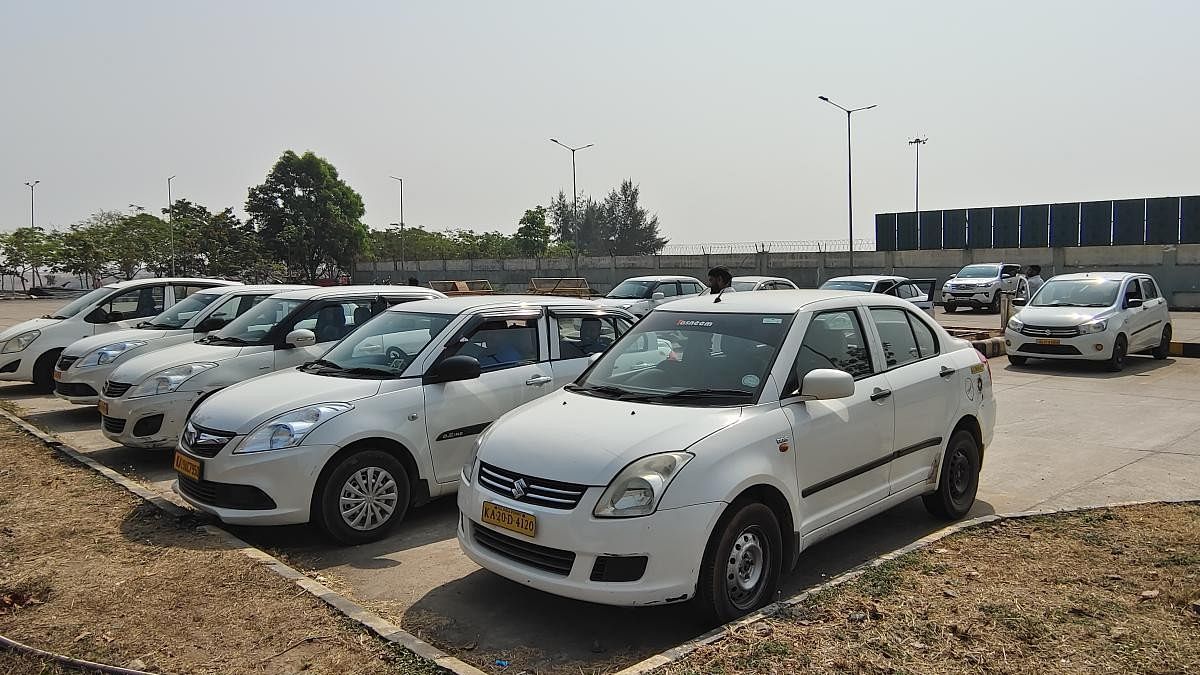
Representative image showing cabs in Bengaluru.
Credit: DH Photo
A ride-hailing firm has suggested that the fare structure fixed by the Karnataka government "defies logic" and was announced without any prior consultation.
On February 3, the state government issued a notification, bringing in a uniform fare structure for all cabs plying within Karnataka, whether they are city taxis or those attached to ride aggregators such as Ola, Uber and Rapido.
Cabs have been categorised into three based on their purchase price. The base fare (first four kilometres) for a cab costing up to Rs 10 lakh is Rs 100. For every subsequent kilometre, it's Rs 24. For cabs costing Rs 10-15 lakh, the base fare is Rs 115 and for every subsequent kilometre it's Rs 28. The base fare for cabs costing more than Rs 15 lakh, it's Rs 130 and 32, respectively.
The government has also stipulated luggage, waiting time and night-time charges. While taxi drivers/aggregators can collect GST and tolls from passengers, they cannot levy any per-minute charges.
The previous fares, notified in 2021, contained a flexi-fare structure that allowed cab operators to charge anything within a specific band. This has been removed. For example, if the fare after the first four kilometres was between Rs 24 and Rs 48, passengers were charged Rs 35 or Rs 40/km.
Sources in a ride-hailing firm said: "These changes have been announced without any prior consultation with the industry and defy logic. We also foresee logistical issues with implementation. This will leave both riders and drivers unhappy. Riders will have to pay significantly more to travel between popular locations. In a city like Bengaluru, the result of removing time spent from the equation when calculating fares will mean that drivers will not have an incentive to drive and riders will not find a cab ride in many instances."
According to the firm, fares will go up for both short and long distances.
For example, a cab ride from Manyata Tech Park to the Banaswadi railway station (6-7 km) will cost 22% more. The ride from Electronics City to the Kempegowda International Airport (45-50 km) will cost 64%-72% more.
Ride-hailing firms Ola and Uber operate without a licence in the state because their licences expired in 2021. They have challenged the Karnataka On-demand Transportation Technology Aggregators Rules, 2016, and the high court has restrained the government from taking coercive action against them.
The sources said they had yet to receive a formal communication or notice from the transport department about the new fare structure.